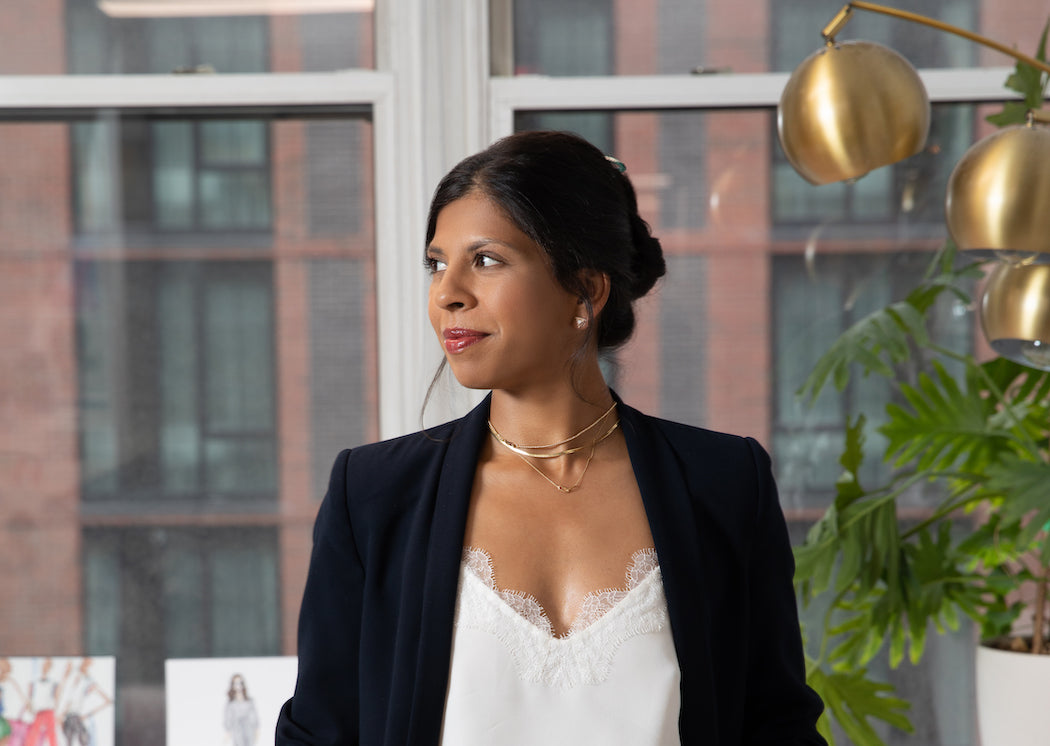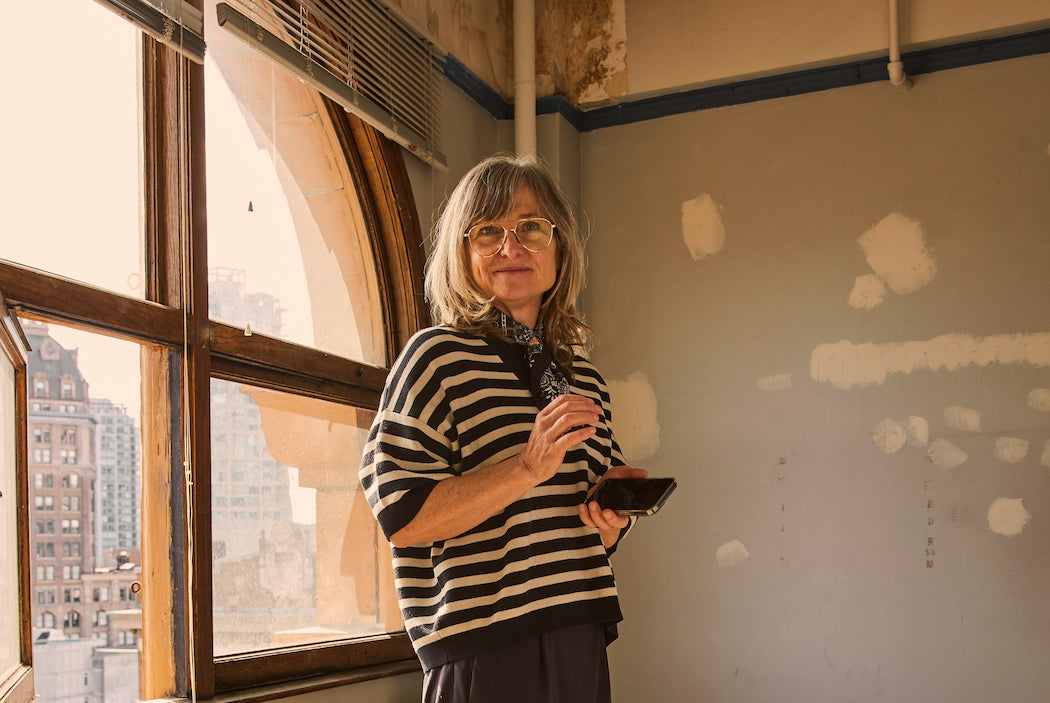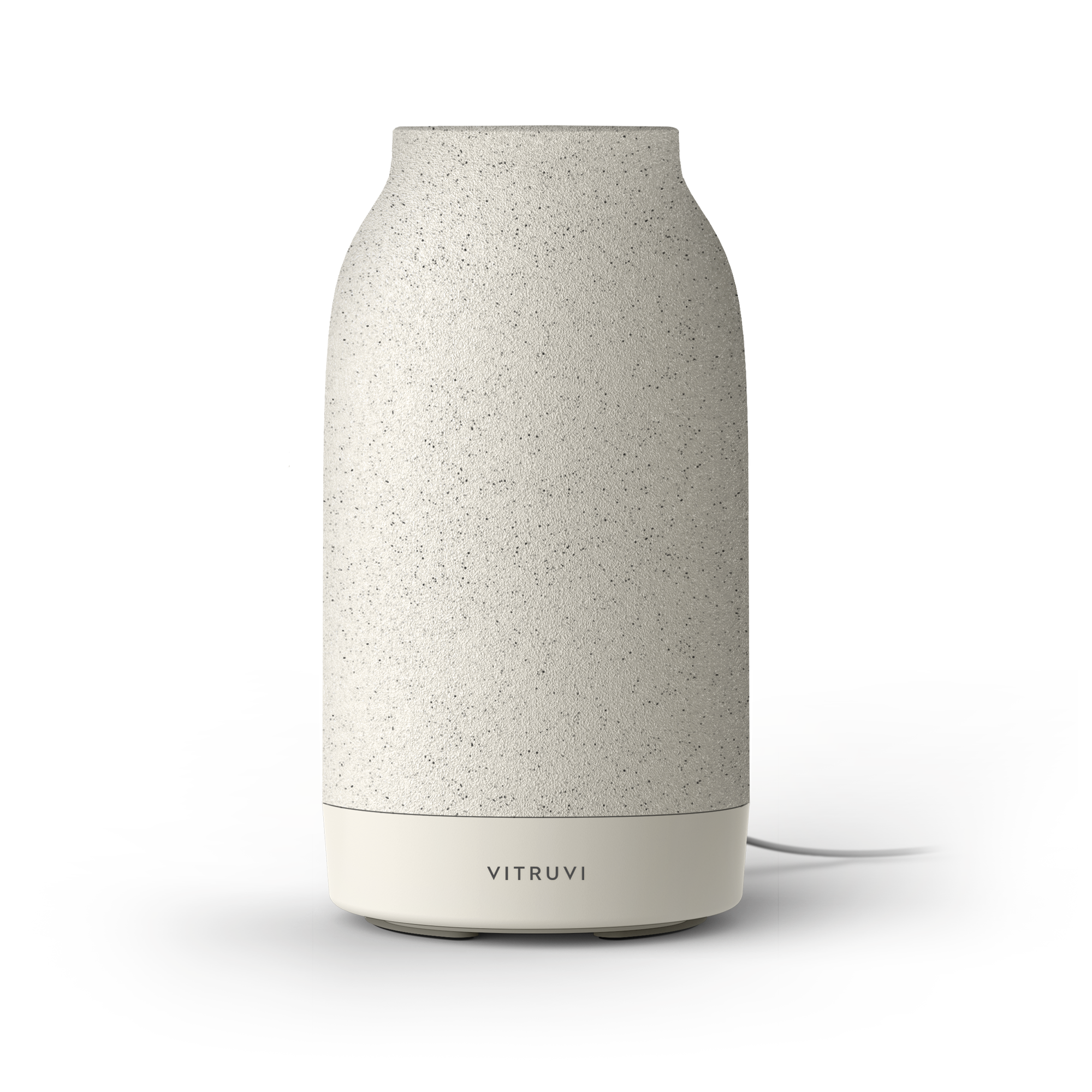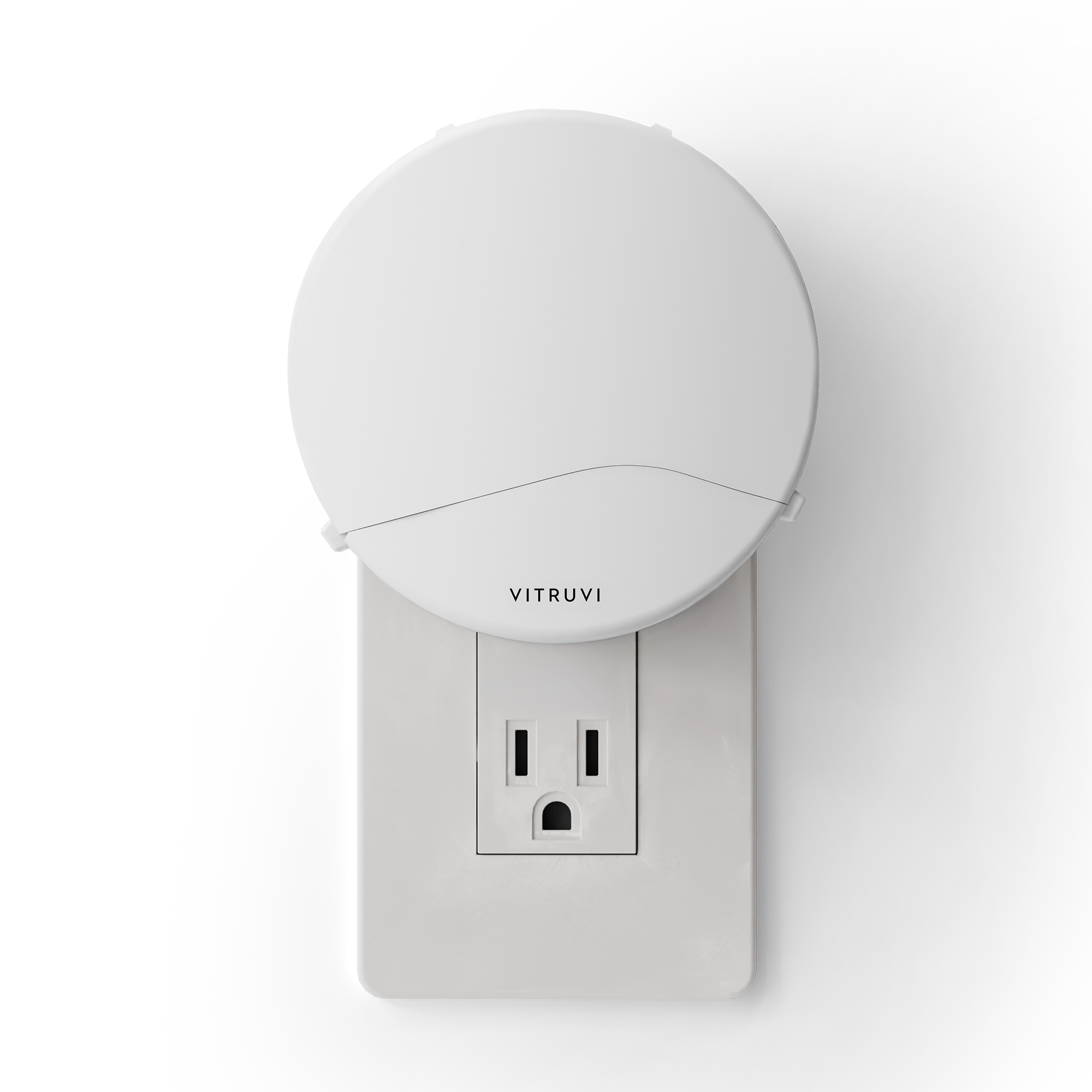When Michelle Cordeiro Grant thought about the lingerie industry—really thought about it—she came to a realization that was hard to shake: items of clothing traditionally only worn by women were being monopolized and created by men.
“You had a category that’s $13 billion in the United States, and men were making the decisions,” she says via video from her home in Long Island. “It was all about push-ups and adding two cups and bigger boobs. It wasn’t about human uniqueness. Women are all snowflakes, and that’s pretty awesome.”
It’s one of the main reasons she founded Lively: an ethically-made intimates, swimwear, activewear, and loungewear brand with a focus on celebrating all women in all forms. With a background in corporate fashion at well-known brands, Cordeiro Grant saw firsthand the kinds of decisions that were being made: “When I was at Victoria's Secret, maternity was not allowed in the room,” she recalls. “Maternity is not sexy, apparently.” She swore her brand would be different, and it wholeheartedly is.

Lively—much like its founder—is a breath of fresh air. Simple silhouettes and soft fabrics are the name of the game here, with a wide range of designs to fit every body type. From bralettes, to bodysuits, to sports bras, to, yes, maternity, Lively is about real womanhood, plain and simple. Below, Cordeiro Grant discusses home, leadership, and company culture.
So, we’re still here in this pandemic. How has it been for you and for Lively?
I’m a very unapologetically optimistic person, so in the hardest of times I lean into the glass being half full. So I think for us, this was a moment where we had to stop and pause and figure out what the glass half full was. And for us, it was our people. So I think it really brought us together, realizing that our greatest asset is our team and we need to protect them first and foremost—and in doing so, I think it really brought our team together in a different way, even virtually. We’ve probably brought on more than a dozen new team members, and you can’t actually tell who was hired during the pandemic and who wasn’t, because we’ve just connected in a different way.
It’s been hard also, and I think because we are so optimistic, it’s important that we stop and say, “Okay, we’re mentally clouded right now. We want to see each other in real life but we can’t right now, and that’s okay, and one day we will.” I think at the end of the day what we’ve realized is that health and wellness have taken on a whole other meaning in terms of productivity at work.
How did you virtually cultivate that team mentality, especially with new people?
When we onboard someone, we do these little one-pagers that ask funny questions like: What’s one thing that’s surprising about you? It’s very light and not about your resume, it’s really about you. And then we do a lot of buddy coffee chats; every other Thursday, I do a coffee chat with a random member of the team where we don’t talk about work at all. We just talk as if we were by a water cooler or in the hallway. So we encourage a lot of interaction like that where it’s just random chatting, not about work but about the weather, your new necklace—the conversations you would have in the office.
For you personally, what have been some of your coping mechanisms or self-care practices throughout the pandemic?
Consistency in some type of schedule is very good for me. Pre-pandemic, I would wake up and exercise every morning, and then have my commute. So during the pandemic, I wake up and exercise every morning, and then that time that I would be commuting, I give to my family instead of work.
But creating those bookends as if I was in the office and leaving the office is really important. And I think the other thing is acknowledging that everybody has found a different way to maneuver this. Our hours are not the same across the team; some people need that mid-day break to work out and meal prep, versus I like to work out in the morning and then meal prep at night. So really being supportive of that. And then the last thing I would say is we really encourage no meetings on Fridays so that you can de-Zoom, clear your inbox, clear your mind, and really have a weekend. And walking-talks: I was over-screening with the video chats, so any calls that I can take on audio and walk, I do.

People have really refocused on their homes during this time, too—have you done anything different to yours or changed any home routines?
We left New York City after 18 years; my husband and I moved our children in January of 2020, and we actually built a mini gym in our basement so that we could get our sweat in, even in the winter. And it became this really fun family time; fitness and endorphins are a really big part of our family’s happiness, so that was number one.
Number two is I started what I call the daily elixir: a smoothie with spinach and ginger and turmeric that I still drink every day, to this day. I’ve really leaned into hydration, greens, and just a very natural lifestyle, not over-processed—and really understanding that I have the time now to go to a fruit stand.
It’s been quite an interesting couple of years to see people really embracing comfortable clothing—the exact types of products you’ve been selling since 2016.
Our loungewear business went through the roof during the pandemic, and it was just something we created because we wanted to wear Lively 24 hours a day. We were like, “We actually need to make a legitimate amount of this now!” To your earlier question about home, I think really creating cozy nooks was another thing that I did. Even in this room I have a little library corner where I take calls.
Does scent play into that for you?
Big time. Sometimes I’ll take a bath that has a certain smell, whether it’s mint and Eucalyptus to wake up or Lavender to decompress. Smell is a very big part of our home.
What have been some of the biggest surprises or learnings for you since starting Lively?
I think what I’ve learned is that the world is a series of moments and pendulums. The pendulum really swung with the pandemic, pushing everyone to go home, and swung towards people realizing they need to have a less rigorous schedule. So figuring out that equilibrium will be really interesting. It’s the same thing from a business aspect: we swung digitally so hard last year, and then this year, when things calmed down for a hot second, it was back to physical, and stores were bumping. When all this settles, it’s going to be really interesting and eye-opening to understand how the ecosystem of digital and physical has grown.
So while this has been really mentally and physically taxing, the positive of it is that the world has probably gone forward leaps and bounds in terms of understanding what humans are capable of—but more so what humans actually need. I get really philosophical about it because I think that we were just doing way too much, and we realized that we don’t actually have to do that much to accomplish so much more.
So you’re in the camp that believes we’re going to take learnings from this time and actually apply them when things go back to “normal”?
Yes. And if not we, at least me. I’m not going back to that type of rigor. I was even in the city on Monday and I found myself quickly falling back into old patterns. I was like, “Hold on. Take time to pee, time to drink water. Or time to not do anything for 20 minutes.”
It will be interesting to try to catch yourself and not fully go back into those old habits. To reel yourself in.
I think you have to talk about it. Verbalize it, especially if you’re in a leadership role.
What else do you think makes a good leader?
Compassion, transparency, and structure. I’m a mother, and the one thing I’ve learned about children is they need to feel secure and know what to expect. And it’s the same in the world of startups. It’s chaos, but if you can create what we say is controlled chaos, people feel more settled and able to think and see and do. So number one is having structure and letting people know the boundaries of what to expect. Number two is compassion and realizing that these are people, this is not a machine. A business is not just about a spreadsheet, it’s about the humans. There are a lot of conversations out there about what is the thing that makes your business unique and proprietary, and I would say it’s my team. You can’t recreate my team. And so that’s where compassion comes in, for sure. And then transparency is being really honest about, “I’m a human, I feel this way, I’m scared sometimes. Here’s what I do to persevere.”












